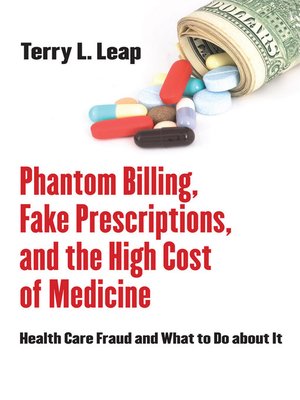Phantom Billing, Fake Prescriptions, and the High Cost of Medicine
ebook ∣ Health Care Fraud and What to Do about It · The Culture and Politics of Health Care Work
By Terry L. Leap

Sign up to save your library
With an OverDrive account, you can save your favorite libraries for at-a-glance information about availability. Find out more about OverDrive accounts.
Find this title in Libby, the library reading app by OverDrive.



Search for a digital library with this title
Title found at these libraries:
| Library Name | Distance |
|---|---|
| Loading... |
U.S. health care is a $2.5 trillion system that accounts for more than 17 percent of the nation's GDP. It is also highly susceptible to fraud. Estimates vary, but some observers believe that as much as 10 percent of all medical billing involves some type of fraud. In 2009, New York's Medicaid fraud office recovered $283 million and obtained 148 criminal convictions. In July 2010, the U.S. Justice Department charged nearly 100 patients, doctors, and health care executives in five states of bilking the Medicare system out of more than $251 million through false claims for services that were medically unnecessary or never provided. These cases only hint at the scope of the problem.
In Phantom Billing, Fake Prescriptions, and the High Cost of Medicine, Terry L. Leap takes on medical fraud and its economic, psychological, and social costs. Illustrated throughout with dozens of specific and often fascinating cases, this book covers a wide variety of crimes: kickbacks, illicit referrals, overcharging and double billing, upcoding, unbundling, rent-a-patient and pill-mill schemes, insurance scams, short-pilling, off-label marketing of pharmaceuticals, and rebate fraud, as well as criminal acts that enable this fraud (mail and wire fraud, conspiracy, and money laundering). After assessing the effectiveness of the federal laws designed to fight health care fraud and abuse—the antikickback statute, the Stark Law, the False Claims Act, HIPAA, and the food and drug laws—Leap suggests a number of ways that health care providers, consumers, insurers, and federal and state officials can bring health care fraud and abuse under control, thereby reducing the overall cost of medical care in America.







